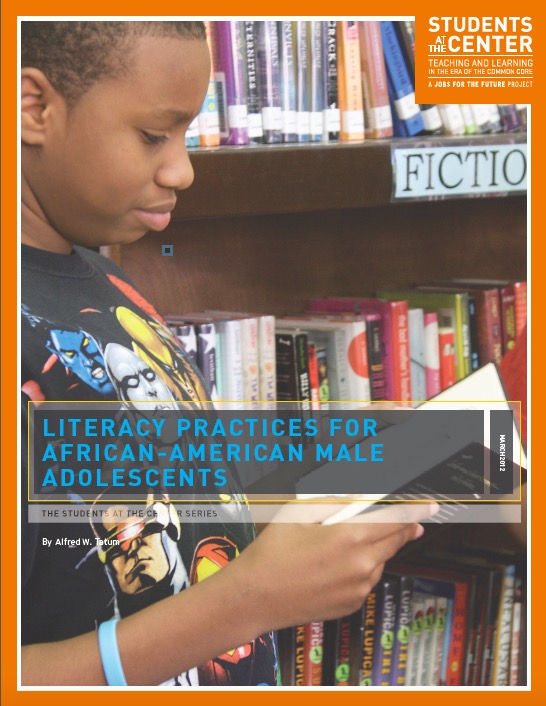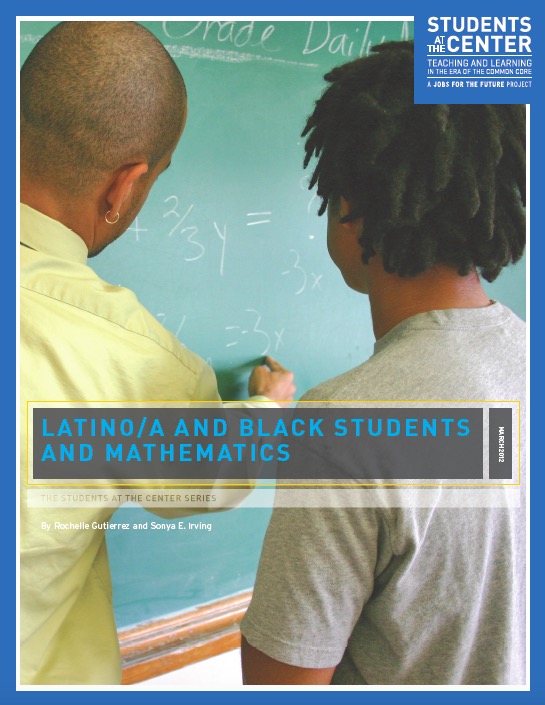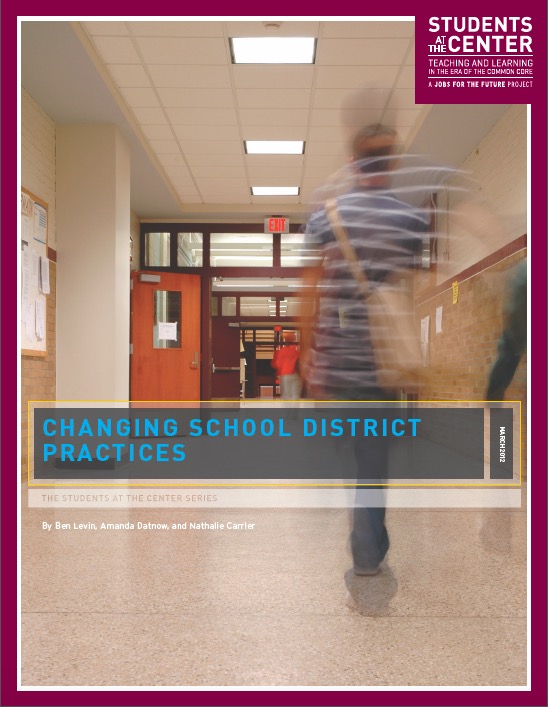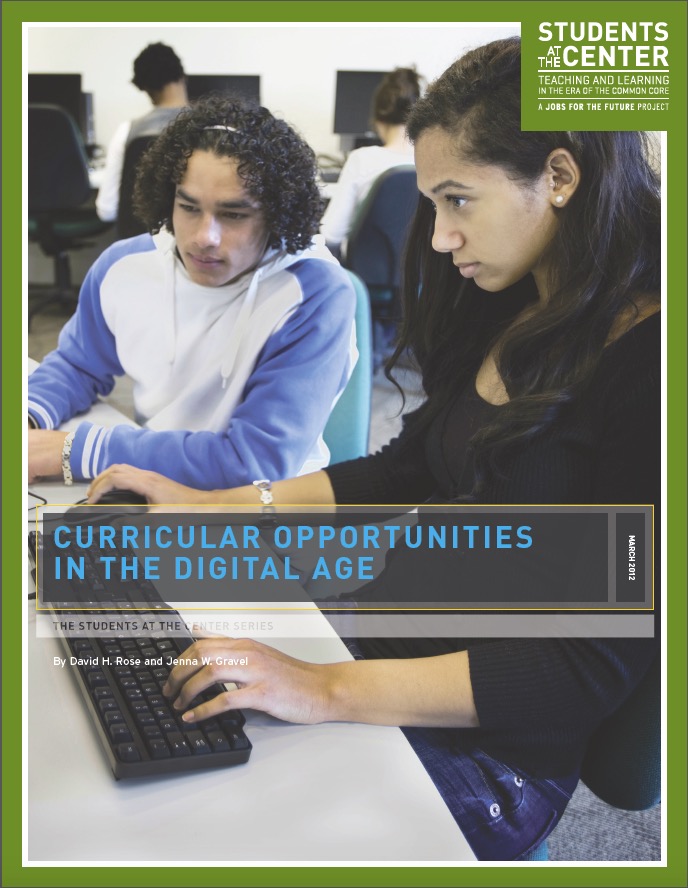Literacy Practices for African-American Male Adolescents: The Students at the Center Series

This paper, placing student-centered learning in the context of race and gender, reviews literature on factors that impede reading achievement, provides a socio-historical perspective for advancing African-American male literacy, proposes a framework of literacy instruction and discusses implications for research, policy and practice. Focusing on African-American males, the author describes how current school literacy practices… Read More ›
Latino/a and Black Students and Mathematics: The Students at the Center Series

This report examines a wide variety of mathematical practices and competencies that are missed by school mathematics. Furthermore, it highlights the voices of learners themselves—what meanings they place on mathematics and mathematical learning. Using new perspectives on mathematics as a cultural and social activity and new research on learning outside the school, the authors ask… Read More ›
Changing School District Practices

This report, noting an absence of references to student-centered learning approaches in a subset of high-performing districts, details seven key district characteristics to support innovative approaches in general, and student-centered learning approaches in particular. School districts have an important role to play in opening the door to the implementation of student-centered learning approaches and ensuring… Read More ›
Lead the Change: Amanda Datnow
American Educational Research Association‘s Eduational Change Special Interest Group presents: Lead the Change Series: Q & A with Amanda Datnow. Amanda Datnow discusses how schools can effectively use data for school improvement. Excerpt: “Many schools and schools systems were drawn to the idea of data-driven decision making as high stakes accountability policies came to the… Read More ›
Mind, Brain, and Education Journal
Mind, Brain, and Education (MBE), recognized as the 2007 Best New Journal in the Social Sciences & Humanities by the Association of American Publishers’ Professional & Scholarly Publishing Division, provides a forum for the accessible presentation of basic and applied research on learning and development, including analyses from biology, cognitive science, and education. Visit the… Read More ›
Black Male Student Success in Higher Education
Black Male Student Success in Higher Education, a Report from the National Black Male College Achievement Study, moves beyond deficit perspectives on achievement by highlighting persons, policies, programs, and resources that help Black men succeed across a range of college and university contexts. Instead of adding to the now exhaustive body of literature and conversations… Read More ›
Curricular Opportunities in the Digital Age: The Students at the Center Series

This paper explores how new digital technologies can be used to design curricula that are flexible enough to adapt readily to individual differences. The authors propose that universal design for learning—as the confluence of advances in the neuroscience of human variability and in multimedia technologies—can create an “ecology for learning” which provides rich, diverse and… Read More ›
The Pedagogy of Poverty Versus Good Teaching
Martin Haberman’s “Pedagogy of Poverty versus Good Teaching” challenges educators to think differently about the “core functions of urban teaching”. An excerpt, “The classroom atmosphere created by constant teacher direction and student compliance seethes with passive resentment that sometimes bubbles up into overt resistance. Teachers burn out because of the emotional and physical energy that… Read More ›
Student-centered learning: What does it mean for students and lecturers?
Research paper by: Geraldine O’Neill and Tim McMahon, University College Dublin The term student-centred learning is widely used in the teaching and learning literature. Many terms have been linked with student-centred learning, such as flexible learning (Taylor 2000), experiential learning (Burnard 1999), self-directed learning and therefore the slightly overused term “student-centred learning” can mean different things to different people. In addition, in practice it is also… Read More ›
A Nation at Risk: The Imperative for Educational Reform
A Nation at Risk: The Imperative for Educational Reform, A Report to the Nation and the Secretary of Education United States Department of Education, The National Commission on Excellence in Education, April 1983 A Nation at Risk: The Imperative For Educational Reform is the title of the 1983 report of American President Ronald Reagan‘s National Commission on Excellence… Read More ›
MDRC: Transforming the High School Experience
MDRC: Transforming the High School Experience MDRC was created to learn what works in social policy—and to make sure that the evidence we produce informs the design and implementation of policies and programs. Created in 1974 by the Ford Foundation and a group of federal agencies, MDRC is best known for mounting large-scale evaluations of… Read More ›
Pathways to Postsecondary Success
Pathways to Postsecondary Success, a project of UC/ACCORD, is a five-year set of mixed-methods studies focused on maximizing opportunities for low-income youth to earn higher education credentials. With support from the Bill & Melinda Gates Foundation, the project aims to advance research on poverty; produce useful tools that improve educational opportunities and inform the U.S. policy agenda on the relationship between poverty and education.… Read More ›